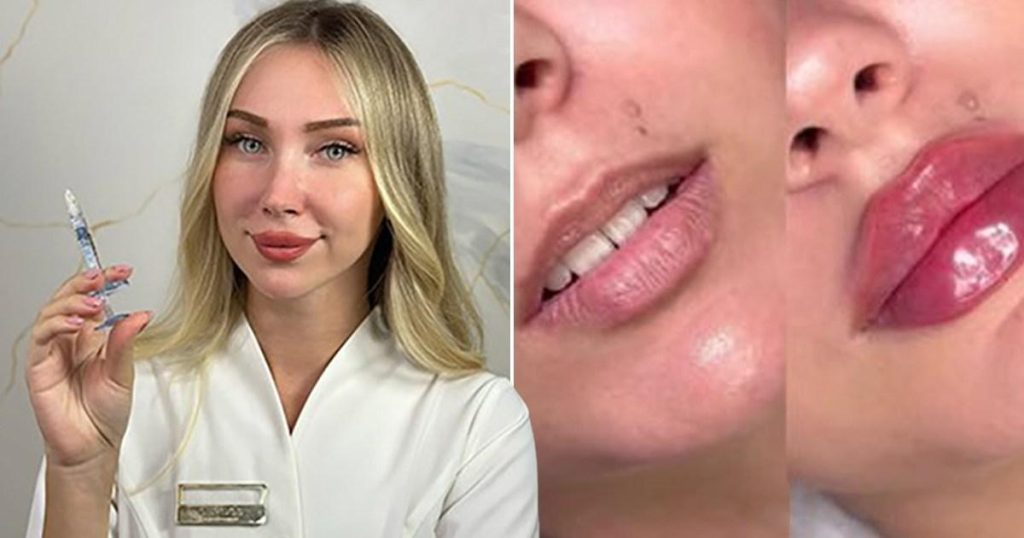The allure of discounted cosmetic procedures led to a disturbing medical crisis in Sofia, Bulgaria, where at least 15 women were hospitalized with symptoms suggestive of botulism following injections administered by a purported dermatologist operating under the alias “Dr. Arina Goodz.” The women presented with a range of neurological symptoms, including drooping eyelids and eyebrows, blurred or double vision, difficulty breathing, muscle pain, and extreme fatigue. One woman reportedly lost vision in one eye. These symptoms aligned with the known effects of botulism, a severe form of food poisoning caused by a potent neurotoxin that disrupts nerve function, leading to paralysis.
The common link among the affected women was their patronage of the same clinic, where they had received injections of Botox and fillers. Botox, a purified form of botulinum toxin, is commonly used in cosmetic procedures to temporarily paralyze muscles, reducing the appearance of wrinkles. However, improper administration or the use of unregulated toxins can lead to serious complications. The remarkably low prices advertised by “Dr. Goodz” – offering discounts of up to 50%, bringing the cost of a single Botox injection down to a mere £55 – raised immediate red flags. Such drastic price reductions suggested the potential use of counterfeit or improperly diluted products, significantly increasing the risk of adverse reactions.
Investigations by Bulgarian health authorities and media outlets quickly revealed that “Dr. Goodz” was not a registered medical practitioner. Her name was absent from the Bulgarian Medical Association’s registry, casting doubt on her qualifications and legitimacy. Her social media presence, featuring enticing advertisements promising “Russian doll-like” pouts and Christmas discounts on injectables, has since been scrubbed. The discrepancy between her online persona and the lack of official credentials exposed a deceptive practice that preyed on individuals seeking affordable cosmetic enhancements.
Botulism, while often associated with contaminated food, can also occur through improperly administered injections. The neurotoxin responsible for botulism attacks the nervous system, disrupting the transmission of signals between nerves and muscles. This disruption leads to the characteristic paralysis seen in botulism cases, which can range from mild to life-threatening. Early symptoms often include blurred or double vision, facial muscle weakness, difficulty swallowing, slurred speech, and breathing difficulties. If left untreated, the paralysis can progress, potentially affecting the respiratory muscles and leading to respiratory failure. While most individuals recover fully with appropriate treatment, the potential for severe complications underscores the importance of seeking medical attention promptly.
The women affected in the Sofia incident experienced a range of symptoms consistent with botulism, prompting health officials to launch an investigation. Doctors at Pirogov Hospital, where the women were admitted, suspected that the injections contained an unregulated toxin administered to areas like the lips, cheekbones, and eyelids. The accounts from affected women, as relayed by Neli Georgieva, deputy chairperson of the Aesthetic Medicine Patients Association, painted a concerning picture of debilitating symptoms that significantly impacted their daily lives. The severity of these symptoms, including the reported loss of vision in one woman, highlighted the potential dangers of unregulated cosmetic procedures.
This incident serves as a stark warning against the allure of cheap cosmetic enhancements offered by unqualified practitioners. The pursuit of beauty should never come at the expense of health and safety. Seeking treatment from licensed and reputable professionals is paramount to minimizing the risks associated with any medical procedure, especially those involving injections of potent substances like botulinum toxin. The case of “Dr. Goodz” and the subsequent hospitalization of multiple women in Sofia underscores the critical importance of due diligence and informed decision-making when considering cosmetic procedures. Choosing qualified practitioners and prioritizing safety over cost can prevent potentially life-altering consequences. The lack of regulation in the aesthetic medicine industry in some regions further exacerbates the risks, allowing unscrupulous individuals to operate with impunity, endangering the health and well-being of unsuspecting clients. Strengthening regulations and increasing public awareness are crucial steps in preventing similar incidents from occurring in the future. The long-term consequences for the women affected in Sofia remain uncertain, adding a tragic dimension to this cautionary tale.


